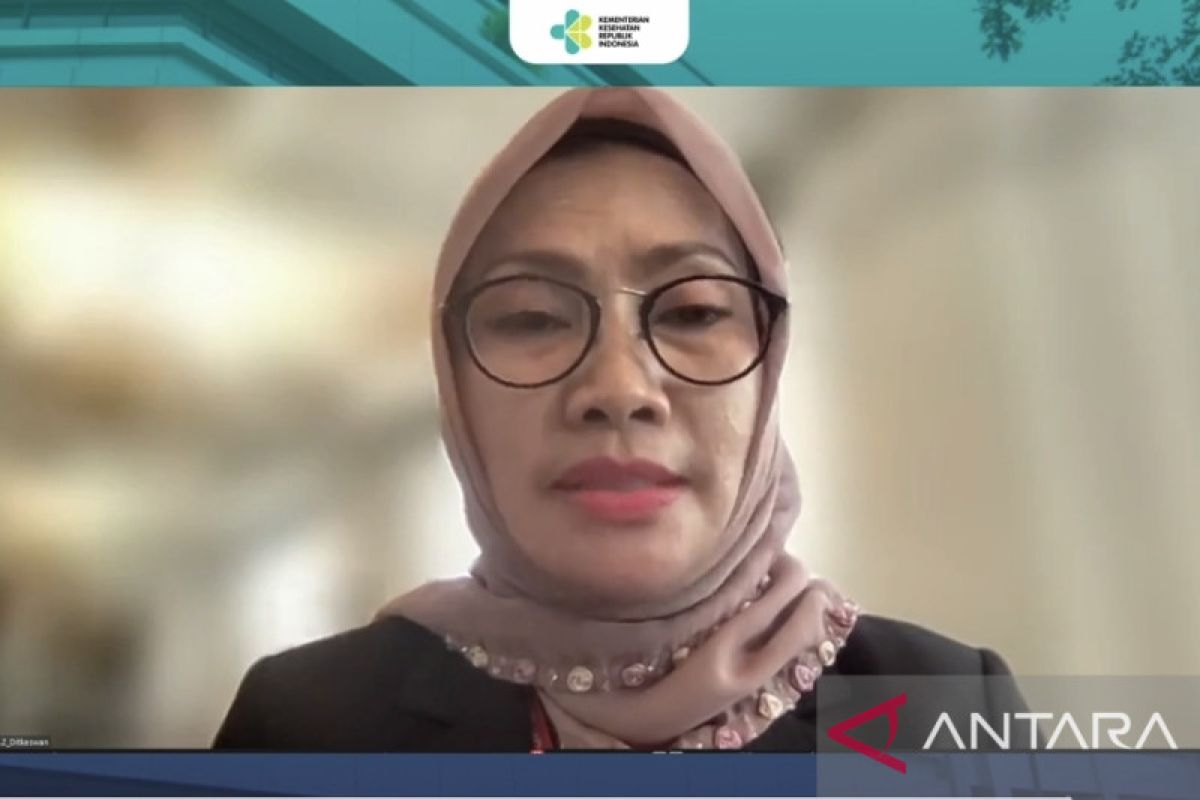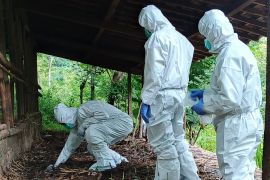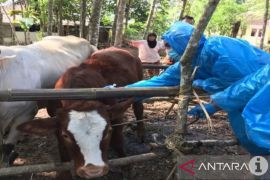The corpses of infected livestock should be burned or buried to prevent infection, director of animal health at the ministry, Nuryani Zainudin, said during the "Anthrax Situation in Indonesia Update" press conference streamed on Thursday.
Anthrax bacteria are included in a type of zoonosis that can transmit from herbivorous animals, such as cows, goats, sheep, and camels, to humans.
Anthrax is also known as a ground disease that can survive for dozens of years—thanks to spore protection—inside the body of an animal and under the ground.
Clinical symptoms seen in animals infected with anthrax include high fever at the start of the infection, then restlessness, convulsions, and death. Not infrequently, livestock die suddenly without clinical symptoms.
Some easily spotted clinical symptoms include bleeding from the orifices, such as ears, nose, and mouth.
"If this dead animal is dissected, then the spore will come out and enter the ground, then it will protect itself for dozens of years," Zainudin explained.
Related news: Ministry relying on vaccination, surveillance to control anthrax
During the event, director of public health at the ministry, Syamsul Ma'arif, urged people to refrain from consuming the meat of livestock infected with anthrax.
This is because boiling the meat for hours will not kill the bacteria.
"Once the spore is inhaled, people usually experience death within 24 hours," he said.
At least 94 percent of anthrax cases in humans are caused by physical contact with livestock infected with anthrax. The spore then spreads into the brain, which can lead to death.
"This case should be handled quickly and supported by special equipment for handling meningitis due to anthrax," Ma'arif added.
Related news: Indonesian govt raises awareness on potential anthrax spore spread
Related news: Ministry uses cross-sectoral work to handle anthrax in Gunungkidul
Translator: Andi Firdaus, Fadhli Ruhman
Editor: Yuni Arisandy Sinaga
Copyright © ANTARA 2023












